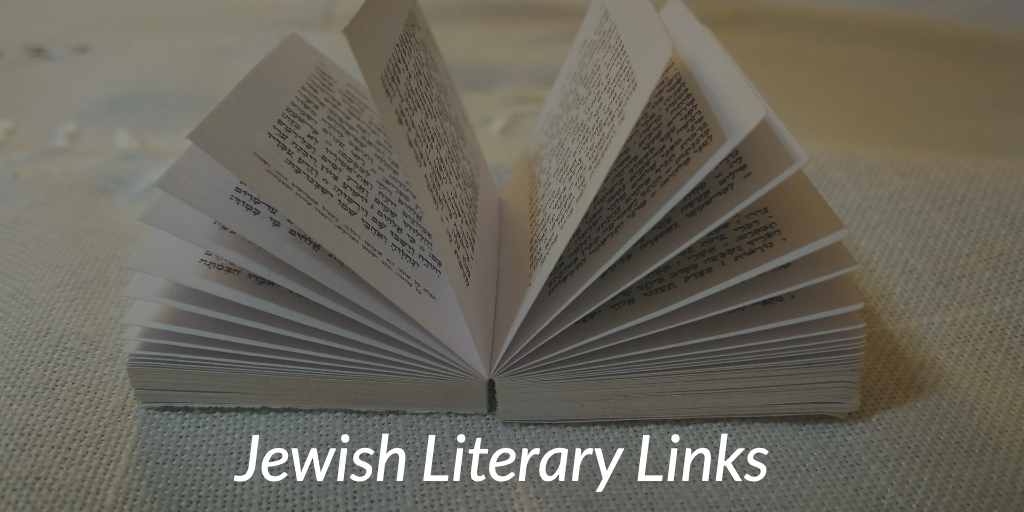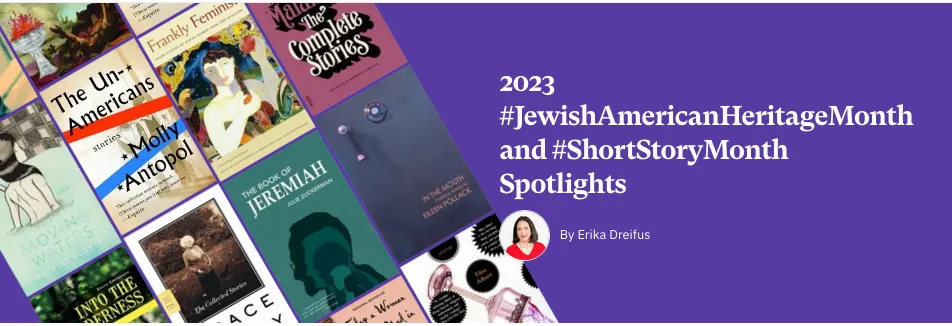Jewish Literary Links

Toward the end of each week, the My Machberet blog presents a collection of links, drawn primarily from the world of Jewish books and writing.
- “For Zionist writers (read: many Jewish writers) the message is clear: we are no longer welcome. Or, rather, we could still be welcome, but only if we push the part of ourselves that loves Israel, lives in Israel, used to live in Israel, has relatives in Israel, or otherwise believes that Israel is an invaluable asset to the Jewish people, deep down into the most secret, unspoken recesses of our minds. In practice, this precludes many of us.” From Yardenne Greenspan’s “We Are No Longer Welcome,” published this week on the Jewish Book Council’s blog.
- In related news, and as National Poetry Month draws to a close: Judy Bolton-Fasman’s new article for Hadassah cites “two trends impacting the Jewish literary world. One is the rise of antisemitism in the arts world….The second trend is a general surge of interest in poetry.”
- Speaking of poetry: I’ve been informed that The Deronda Review has archived a set of Israel-focused poems dated October 2023. Many of the poems there indeed reflect the rawness of six months ago.
- And in the Department-of-In-Every-Generation this Passover week, the Yiddish Book Center has re-upped a powerful short story: Yenta Mash’s “A Seder in the Taiga,” translated by Ellen Cassedy. (If you’re interested in teaching this story [I have], check this resource kit, compiled by Jessica Kirzane.)

- Believe it or not, this is the final “Jewish Literary Links” post for April. Although I’m as yet utterly unprepared for it (let’s hope that changes by this time next week), May will bring us Jewish American Heritage Month (in Canada, Jewish Heritage Month). Since May is also Short Story Month, I have, in the past, I spotlighted Jewish-American short-story collections throughout throughout the month on Twitter. I also compiled as many of the selections as I was able to find available on Bookshop. Please consider these titles for your own reading as well as for any lists, displays, or other efforts with which you may be engaged. (By the way, cognizant of the concurrence of Asian American and Pacific Islander [AAPI] Heritage Month, I also highlighted joint and/or intersectional books, events, and resources. As this May approaches, helpful resources I’ve noticed so far include this JAHM hub (hosted by the Weitzman National Museum of American Jewish History); another suite of materials from the American Jewish Committee (AJC); and this Canadian site.
Here’s wishing everyone a Shabbat shalom and Moadim l’simcha. Please note that this week I have continue to update the “After October 7: Readings, Recordings, and More” document-in-progress. Check also cautionary information (also in-progress), compiled under the title “Writers, Beware.”